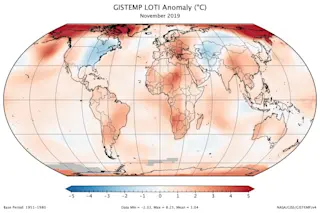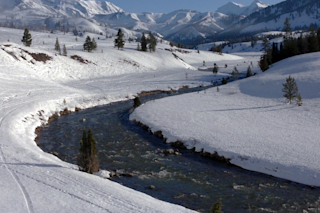Planet Earth just experienced it's second-warmest November on record.
That's according to independent analyses from NASA and the National Oceanic and Atmospheric Administration.
With November now in the books, 2019 stands a 99.9-percent chance of coming in as the second-warmest year in instrumental climate records dating back to 1880. And that, according to Gavin Schmidt, director of NASA's Goddard Institute for Space Studies, assures that 2010 through 2019 will take the dubious title for warmest decade so far.
Earth's surface temperature has risen dramatically since the end of the industrial revolution in the late 1880s. It is now about 1.2 degrees Celsius warmer than the 1880-1920 mean. (Source: Makiko Sato & James Hansen, Climate Science, Awareness and Solutions at Columbia University Earth Institute)
If you happen to live in the eastern half of the contiguous U.S., however, you might be scratching your head. As the November temperature anomaly map at ...














